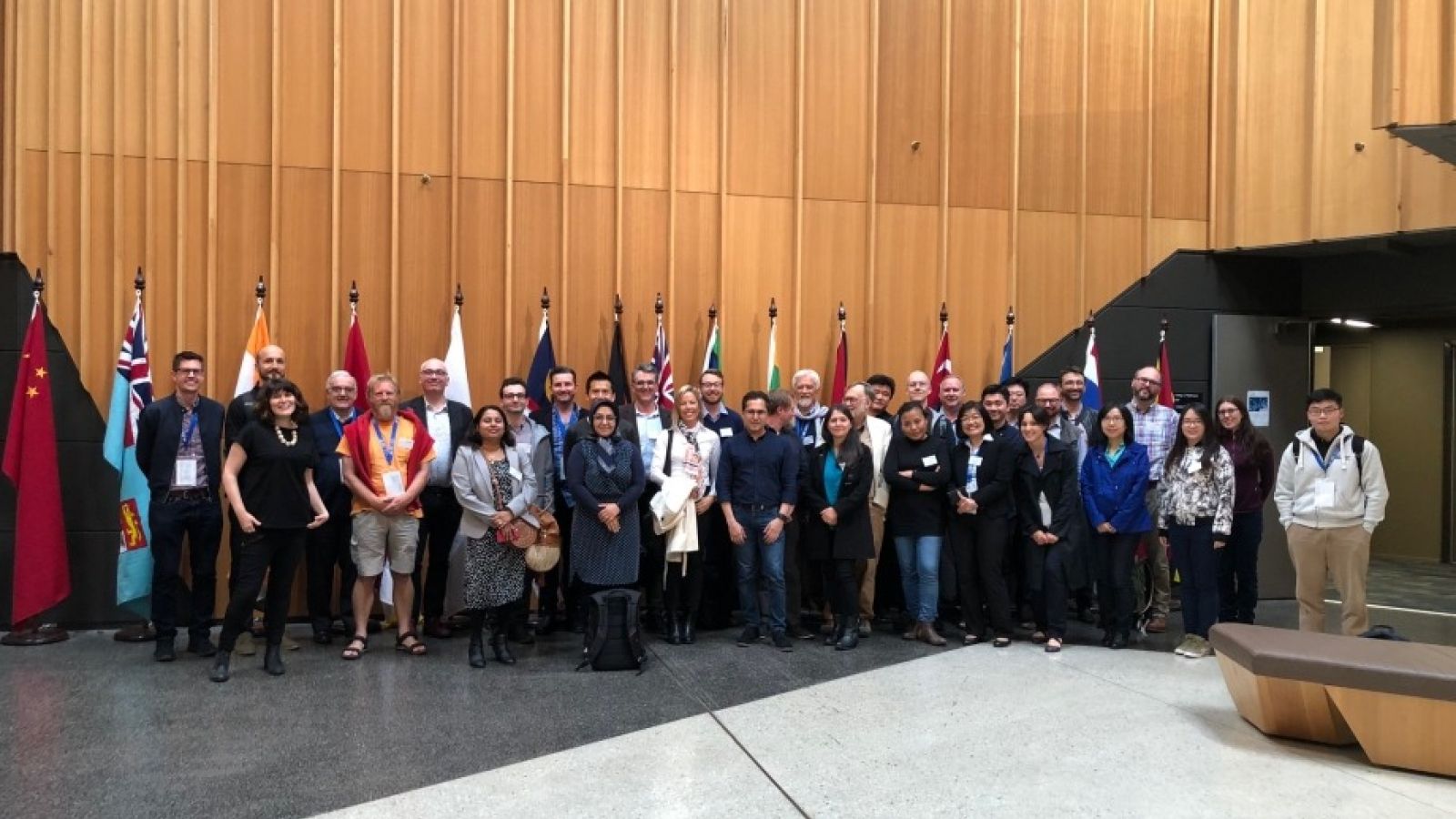Social Network Analysis Conference Brings Researchers to ANU

The Australian Social Network Analysis Conference has brought researchers, students and industry representatives together at ANU to explore key issues and research advances. The conference, organised by the Australian Network for Social Network Analysis, aims to foster collaboration and coordination among those researching social networks, and comes at a time when the role of social networks is more under the spotlight than ever.
Originating in social psychology and mathematical sociology, social network analysis is a social scientific field that looks at social behaviour. This year’s conference looked at topics from online petitions and Tweeting television debates, to terrorism and corporate governance. Among the highlights in a packed schedule were a keynote presentation by Professor Mark Tranmer of University of Glasgow, looking at understanding social, political and health outcomes through multilevel networks, and a mesmerising presentation by Dr Diane Smith from the National Centre for Indigenous Studies at ANU, who looked at the connections between people, places and things that underlie indigenous governance.
The ANU School of Sociology has a strong tradition of research and teaching in social network analysis. Since 2005 the Virtual Observatory for the Study of Online Networks (VOSON Lab) within the School has carried that forward, with new techniques and resources for the online era. Established and led by Associate Professor Robert Ackland, the conference featured a demonstration of the Lab’s new open source collection and analysis tool, VOSON Dashboard. Developed with funding from an ANU Teaching Enhancement Grant, Brian Gertzel and Xiaolan Cai from VOSON Lab demonstrated the new web app which has already been trialled in undergraduate and masters courses at ANU. The new tool is capable of constructing and visualising “inspiration networks”, and builds on the strong success of VOSON Lab’s vosonSML tool released in 2015 that was downloaded over 15,000 times.
The conference also saw Associate Professor Ackland give an update on ongoing research into bots and political influence. The research, conducted by Ackland in conjunction with Dr Tim Graham (ANU School of Sociology/Research School of Computer Science) and Florian Muhle (Bieledelf University) is uncovering the role of social bots during the 2016 US Presidential Election. The research has already attracted widespread media attention in 2018, with the revelation bots were on average 2.5 times more influential than the average human social media user. The ongoing research will help to better identify bots, and understand the way they engage.
About the ANU School of Sociology
The discipline of Sociology is one of the academic pillars on which The Australian National University was built. The ANU School of Sociology has an exciting program of research and teaching that combines the theoretical and applied dimensions of the discipline. Our research and teaching ethos is orientated to the critical analysis of social transformations; publically-engaged in its aspirations and impact, and dedicated to examining inequality in its various manifestations. The ANU is ranked 1st in Australia and 13th in the world for Sociology in the 2018 QS World Subject rankings. Follow ANU School of Sociology on Facebook and Twitter.